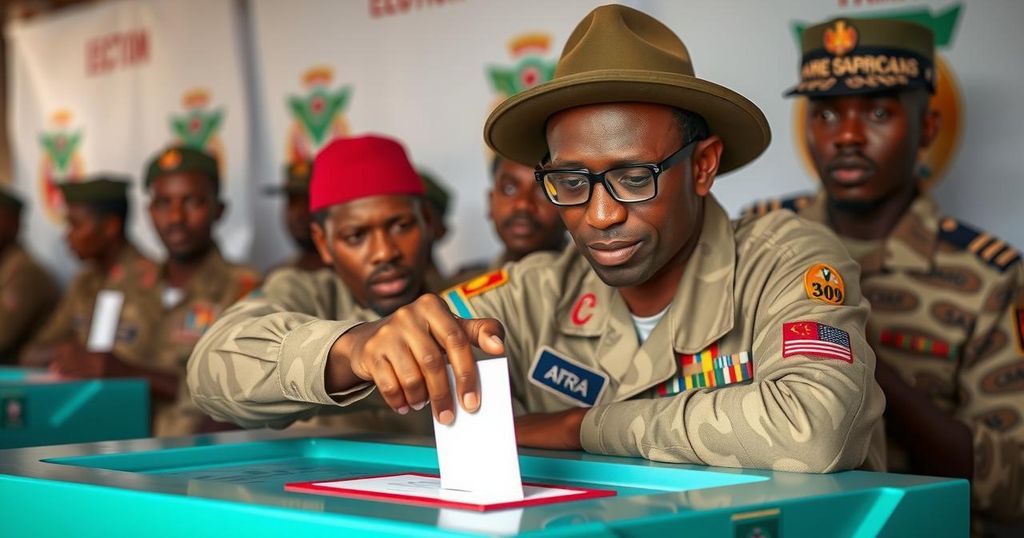Chad’s General Election: A Step Towards Democracy Amid Low Voter Turnout

Chad’s general election, following three years of military rule, witnessed a low turnout of 38 percent amidst calls for a boycott from opposition parties. President Mahamat Idriss Deby Itno, who faces claims of electoral fraud, urged citizens to participate. The election’s integrity is questioned due to reports of missing ballots and public distrust in the electoral process, reflecting broader socioeconomic issues in Chad.
Chad recently held a general election aimed at transitioning from three years of military rule. Despite the government’s claims of a significant step toward democracy, voter turnout was notably low, largely because opposition parties campaigned for a boycott, asserting the election results were predetermined. Reports indicated only a 38 percent turnout for selecting new parliamentary and local representatives. In stark contrast to the government’s assertions, opposition leader Succes Masra emphasized that voter apathy stemmed from the public’s disbelief in the electoral process.
President Mahamat Idriss Deby Itno, who assumed power through a military coup in 2021, encouraged participation, referring to the day as “historic.” On social media, he invited citizens to vote, while downplaying opposition claims of electoral fraud and predetermined outcomes. Some voters voiced their desperation for change, highlighting consistent issues such as unemployment and the rising cost of living. Notably, atypical arrangements allowed military personnel and nomads to vote a day earlier due to logistical challenges.
Election officials declared a record turnout among army members and nomadic communities. However, the opposition Democratic Party of the Chadian People alleged irregularities as over a thousand ballots reportedly went missing before the election, raising concerns about potential fraud in a politically charged environment. Amid ongoing violence from the Boko Haram group and international criticisms regarding the government’s actions in neighboring conflicts, Chad’s elections underscore the precarious nature of its political transition and the ongoing risk of instability.
Chad has been under military governance since the death of long-term leader Idriss Deby in 2021. Following this transition, President Mahamat Idriss Deby Itno has attempted to establish a democratic framework, which included calling for general elections. The atmosphere surrounding these elections has been fraught with skepticism due to allegations of pre-arranged results and the integrity of the electoral process. The opposition’s call for a boycott reflects a widespread distrust in the government and its commitment to genuine democratization, amidst a backdrop of socioeconomic challenges and security issues in the region.
In summary, the recent general election in Chad signals a significant attempt to transition away from military rule, yet the low voter turnout and opposition-led boycott illustrate profound disillusionment with the political process. As the country seeks to rebuild its democratic governance, the credibility of electoral outcomes and the response to public grievances remain crucial for stabilizing Chad’s political landscape. The implications of these elections could shape Chad’s path toward democracy, highlighting both domestic and international challenges ahead.
Original Source: www.myleaderpaper.com







